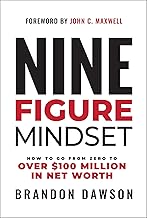

Business acumen self-assessment refers to the process of evaluating one’s own understanding and skills in business operations and decision-making. It involves assessing one’s ability to take a ‘big picture’ view of a situation, make sound decisions, and influence others to achieve organizational objectives.
Self-assessment in business acumen is important for individuals and organizations as it helps in identifying strengths, weaknesses, and areas for improvement. It also enables individuals to gain a greater understanding of how businesses operate, adapt to changes, and provide quality solutions to business issues.
Additionally, self-assessment in business acumen can lead to greater confidence and effectiveness in tackling challenging tasks.
Check out this Youtube video: “Personal effectiveness, ethics & business acumen – June 2023” to assess and improve your business acumen skills for greater success in the business world.
The Benefits of Business Acumen Self-assessment
Understanding the importance of self-awareness in business
Self-awareness in business is crucial for success as it enables individuals to manage stress from coworkers and customers, fostering resilience and effective communication. Understanding one’s own thought processes and emotional responses can shield against disagreements and aid in making sound business decisions.
Leveraging strengths and identifying areas for improvement
Leveraging strengths and identifying areas for improvement is essential for professional growth. Seeking feedback and support from others, participating in advanced training, and conducting a SWOT analysis are effective strategies to enhance strengths and address weaknesses.
How to Conduct a Business Acumen Self-assessment
To conduct a strong business acumen self-assessment, follow this step-by-step guide:
1. Start by evaluating your understanding of the business model, including unfamiliar areas, and knowing the strategies in detail.
2. Utilize online self-assessment tools and resources to gain deeper insights into your business acumen skills.
3. Reflect on your decision-making abilities, financial awareness, strategic thinking, and overall business knowledge.
4. Engage in self-reflection and seek feedback from colleagues or mentors to gain a well-rounded perspective.
Step-by-step guide to evaluating your business acumen
| Step | Description |
|---|---|
| Understand the business model | Gain comprehensive knowledge, know the strategies, and familiarize with all areas. |
| Evaluate decision-making and financial skills | Reflect on your ability to make logical decisions and understand financial aspects. |
| Seek feedback and self-reflection | Engage in self-reflection and seek feedback from colleagues or mentors. |
Utilizing online self-assessment tools and resources
| Tool/Resource | Description |
|---|---|
| Business Acumen Online Assessment | Identify areas to focus on for greater business acumen. |
| Business Acumen Competency Assessment | Focused assessment on designated population of business people. |
| Self-paced Online Training | Enhance your business acumen through self-paced online training. |
Key Factors to Consider in Business Acumen Self-assessment
Identifying your decision-making abilities
Assess your ability to make sound, effective decisions under pressure, weighing risks and benefits to achieve positive outcomes. Reflect on past decisions and evaluate their impact on business results.
Assessing your financial literacy and analytical skills
Evaluate your understanding of financial statements, key performance indicators, and budget preparation. Assess your ability to analyze financial reports and interpret financial performance metrics.
Evaluating your strategic thinking and problem-solving capabilities
Assess your capacity to develop and implement strategic plans to overcome business challenges and achieve organizational objectives. Evaluate your problem-solving skills and adaptability in addressing complex business issues.
Metrics and Indicators of Business Acumen
Key performance indicators for assessing business acumen
Key Performance Indicators for Assessing Business Acumen:
– Understanding of Business Operations
– The Ability to Plan
– Recognition of Financial Acumen
Using Benchmarks and Industry Standards for Comparison:
– Benchmarking with Competitor Research Data
– Setting Benchmark Standards for Processes and Best Practices
– Types of Benchmarking: External Benchmarking, Internal Benchmarking
Setting SMART Goals for Business Acumen Development
Formulating specific, measurable, achievable, relevant, and time-bound goals
When setting SMART goals for business acumen development, it’s important to be specific and clearly define what you want to achieve. Ensure that the goals are measurable so that progress can be tracked effectively over time. They should also be achievable and realistic within the given resources. Moreover, the goals must be relevant to the overall business strategy and objectives. Finally, they need to be time-bound, with clear deadlines for attainment.
Creating an action plan for continuous improvement
To develop business acumen, it’s crucial to create an action plan that focuses on continuous improvement. This plan should include specific steps aimed at enhancing business knowledge and capabilities. It should also outline measurable milestones to track progress. Additionally, the plan must be practical and achievable, aligning with the resources available. Lastly, the action plan should be flexible and adaptable to accommodate changing business needs and market conditions.
| Specific | Measurable | Achievable | Relevant | Time-Bound |
|---|---|---|---|---|
| Clearly defined | Trackable progress | Realistic | Aligned with objectives | Set deadlines |
Strategies for Improving Business Acumen
Seeking mentorship and guidance from industry experts
Seeking mentorship from industry experts is crucial for developing business acumen. Finding a mentor within your industry can provide valuable insights, guidance, and support to navigate professional challenges.
It offers a unique opportunity to learn from someone with extensive experience and gain practical knowledge that may not be available from traditional educational sources. By actively engaging in discussions and networking at industry events, young professionals can make meaningful connections and seek mentorship from established leaders.
Engaging in continuous learning and professional development opportunities
Engaging in continuous learning and professional development activities is essential for honing business acumen. This can include attending seminars, workshops, and online courses related to business management, finance, leadership, and other relevant topics.
Additionally, seeking out opportunities to participate in real-world business scenarios and decision-making processes can significantly enhance one’s business acumen. Continuous learning enables individuals to stay updated with industry trends, best practices, and innovative strategies, fostering a proactive mindset towards professional growth.
| Mentorship | Professional Development |
|---|---|
| Provides valuable insights and guidance | Offers learning opportunities |
| Facilitates networking and meaningful connections | Enhances industry knowledge and skills |
| Nurtures practical knowledge and experience | Fosters a proactive mindset for growth |
Challenges and Obstacles in Business Acumen Self-assessment
Overcoming biases and blind spots in self-assessment
It’s crucial to address cognitive biases and the bias blind spot when conducting a business acumen self-assessment. Individuals tend to be less aware of their own biases than those of others, leading to inaccurate self-assessment results.
Seeking feedback, coaching, and validation is essential to identify and confront these blind spots and biases. Embracing a growth mindset and learning from failures can also help individuals overcome their biases and improve the accuracy of their self-assessments.
Addressing the fear of failure and rejection
The fear of failure and rejection can significantly impede the effectiveness of a business acumen self-assessment. It’s essential to view failures as opportunities for growth and learning.
Embracing a growth mindset, setting achievable goals, and celebrating successes, regardless of their scale, can help individuals mitigate the fear of failure. Additionally, seeking guidance from mentors, business coaches, or industry peers can provide the necessary support to overcome this fear and improve self-assessment accuracy.
Overcoming Common Misconceptions about Business Acumen
Dispelling myths and misunderstandings about business acumen
Many people believe that business success is solely dependent on complex business processes and strategies. However, the truth is that success often stems from a combination of factors, including leadership, decision-making, and adaptability. Business acumen encompasses a wide range of skills and is not limited to intricate processes.
Highlighting the multifaceted nature of business acumen
Business acumen is often misunderstood as purely financial acumen. While financial skills are essential, business acumen also encompasses strategic thinking, problem-solving, and soft skills such as communication and leadership. This multifaceted nature allows individuals to navigate complex business challenges and drive overall success.
| Common Misconception | Reality |
|---|---|
| Success driven by complex processes | Success involves a combination of factors including leadership and adaptability |
| Business acumen equals financial acumen | Business acumen includes strategic thinking, problem-solving, and soft skills |
Business Acumen Self-assessment Tips and Best Practices
Learning from past experiences and failures
- Embrace failure as a learning opportunity.
- Develop a growth mindset to see failures as stepping stones to success.
Seeking feedback and constructive criticism from colleagues and peers
- Foster a culture of open communication and feedback.
- Encourage colleagues and peers to provide constructive feedback for personal and professional growth.
Integrating Business Acumen Self-assessment into Performance Reviews
Incorporating self-assessment into annual performance evaluations
- Yes, incorporating self-assessment into annual performance evaluations can provide employees with the opportunity to reflect on their own performance, set goals, and take ownership of their career development.
Aligning personal development goals with organizational objectives
- Yes, aligning personal development goals with organizational objectives is essential for ensuring that individual efforts contribute to the overall success of the organization.
Measuring and Tracking Progress in Business Acumen Development
Using key metrics to monitor growth and improvement
To measure and track progress in business acumen development, it is crucial to identify and utilize key metrics to monitor growth and improvement. Key metrics such as financial literacy, decision-making effectiveness, strategic thinking, and adaptability should be tracked regularly to assess the development of business acumen.
Celebrating successes and milestones in business acumen development
Celebrating successes and milestones in business acumen development is essential for boosting morale and fostering a culture of continuous improvement. Recognizing individuals or teams for demonstrating enhanced business acumen through meaningful achievements and breakthroughs can significantly motivate others to strive for similar growth.
Case Studies of Successful Business Acumen Self-assessment
Real-world examples of individuals or organizations that have benefited from self-assessment
- Case Study 1: Amazon’s Jeff Bezos is a prime example of successful business acumen self-assessment. By constantly evaluating market demands, he pivoted from a book retailer to a global e-commerce giant.
- Case Study 2: Apple Inc. under Steve Jobs exhibited remarkable business acumen reflective self-assessment, leading to innovative product launches and consistent growth.
Lessons learned from their experiences in improving business acumen
| Lesson | Description |
|---|---|
| Adaptability | Both Amazon and Apple exemplify the significance of adapting to market dynamics through continuous self-assessment. |
| Customer-Centric Approach | Their focus on understanding customer needs enabled them to develop solutions aligning with consumer demands. |
| Innovation | By fostering an environment of innovation and risk-taking, these entities could transform their industries. |
| Resilience | Despite failures, they embraced resilience, displaying a crucial trait in improving business acumen. |
The Role of Emotional Intelligence in Business Acumen Self-assessment
Understanding the connection between emotional intelligence and business acumen
Having strong emotional intelligence is crucial for successful business acumen self-assessment. Understanding one’s own emotions and their impact on decision-making is essential for effective leadership and interpersonal interactions.
Emotional intelligence enables business professionals to navigate challenging situations with empathy and insight, fostering stronger relationships and more informed decision-making.
Developing empathy and interpersonal skills for effective leadership
Developing empathy and interpersonal skills plays a vital role in enhancing leadership effectiveness and business acumen self-assessment. Empathy allows leaders to understand and connect with their teams on a deeper level, fostering a collaborative and supportive environment.
Furthermore, effective interpersonal skills enable leaders to communicate persuasively, resolve conflicts, and inspire others to contribute to the collective success of the organization.
| Key Points |
|---|
| Emotional intelligence is essential for successful business acumen self-assessment. |
| It enables professionals to understand and manage their emotions effectively. |
| Developing empathy and interpersonal skills is crucial for effective leadership. |
| Empathy fosters stronger connections and collaborative environments. |
All in all, emotional intelligence and the development of empathy and interpersonal skills play a significant role in business acumen self-assessment, contributing to effective leadership and informed decision-making.
The Impact of Business Acumen Self-assessment on Career Advancement
Having strong business acumen self-assessment skills can significantly impact an individual’s career advancement. By accurately assessing one’s business acumen, professionals can identify their strengths and weaknesses, allowing them to focus on skill development and continuous improvement.
Exploring the correlation between business acumen and professional growth
The correlation between business acumen and professional growth is undeniable. Individuals who continually assess and refine their business acumen are better equipped to navigate complex business scenarios, make strategic decisions, and drive organizational success.
This correlation highlights the importance of consistently evaluating and enhancing business acumen for career advancement.
Opportunities for advancement and leadership roles through self-assessment and development
Engaging in business acumen self-assessment provides individuals with opportunities for advancement and leadership roles within their organizations. By recognizing and addressing areas of improvement, professionals can position themselves as valuable assets and demonstrate readiness for increased responsibilities and leadership positions.
| Advantages of Business Acumen Self-assessment | Impact on Career Advancement |
|---|---|
| Enhanced Decision-making Abilities | Opens Doors to Leadership Roles |
| Strategic Vision and Problem-solving Skills | Increased Opportunities for Advancement |
| Adaptability during Times of Change | Clear Path to Professional Growth |
This table highlights the advantages of business acumen self-assessment and its direct impact on career advancement. Through self-assessment and continuous development, individuals can distinguish themselves as capable leaders and valuable contributors to organizational success.
Ethical Considerations in Business Acumen Self-assessment
Maintaining integrity and honesty in self-assessment means being brutally honest with oneself, acknowledging both strengths and weaknesses without embellishment. It’s crucial to uphold ethical standards in business decision-making by ensuring that assessments are transparent, free from bias, and based on factual evidence.
Maintaining integrity and honesty in self-assessment
Maintaining integrity and honesty in self-assessment is the cornerstone of an effective business acumen self-assessment. It involves a deep introspection that requires the individual to candidly evaluate their skills, knowledge, and performance without the influence of external factors. This ethical approach fosters growth and development by identifying areas for improvement and leveraging strengths.
Upholding ethical standards in business decision-making
Upholding ethical standards in business decision-making is paramount to fostering a fair and just work environment. This involves making decisions based on integrity, impartiality, and respect for all stakeholders. By adhering to ethical principles in decision-making, businesses can enhance trust, credibility, and long-term success.
| Ethical Considerations | Importance |
|---|---|
| Maintaining integrity and honesty in self-assessment | Fosters personal growth and development |
| Upholding ethical standards in business decision-making | Enhances trust, credibility, and long-term success |
Recommended Amazon Products for Business Acumen Self-assessment
Here’s a curated list of products that can help you improve your business acumen self-assessment with ease. These recommendations are based on functionality, price, and reviews.
Book: “Emotional Intelligence 2.0” by Travis Bradberry and Jean Greaves


This book provides valuable insights into emotional intelligence and its impact on business acumen. It includes self-assessment tools and practical tips for developing emotional intelligence in a professional setting.
| Pros | Cons |
|---|---|
| – Comprehensive guide to understanding emotional intelligence | – Some readers may find the content to be basic |
| – Includes self-assessment strategies | – The focus on emotional intelligence may not suit everyone’s needs |
| – Well-structured and engaging writing style | – Hardcover version may be pricey for some |
Financial Calculator: Texas Instruments BA II Plus Financial Calculator


This financial calculator is a valuable tool for assessing financial literacy and analytical skills. It aids in performing complex business and financial calculations with ease, enhancing your understanding of key financial metrics.
| Pros | Cons |
|---|---|
| – Efficient for time value of money calculations | – Might be unnecessary for those already proficient in financial mathematics |
| – User-friendly interface for quick calculations | – The learning curve for advanced functions may be steep for some users |
| – Durable and reliable | – Some users may prefer using financial analysis software over a physical calculator |
Business Strategy Board Game: Concordia


Concordia is a board game that enhances strategic thinking and decision-making abilities. It provides an engaging way to develop and assess your skills in resource management, long-term planning, and adapting to changing scenarios.
| Pros | Cons |
|---|---|
| – Promotes strategic thinking and planning | – Requires time and commitment for gameplay, not suitable for quick assessments |
| – Engaging and enjoyable for group play | – May not directly align with specific business scenarios |
| – High-quality components and replay value | – Some players may not be interested in board games or prefer digital simulations |
Online Course: “Business Strategy” on Udemy


This course offers in-depth insights into business strategy, helping individuals develop their strategic thinking and problem-solving capabilities. It provides practical knowledge and tools to assess and enhance business acumen.
| Pros | Cons |
|---|---|
| – Accessible from anywhere with an internet connection | – Not suitable for those who prefer in-person learning experiences |
| – Comprehensive coverage of business strategy topics | – Pricing may not be budget-friendly for everyone |
| – Highly rated and well-structured curriculum | – Self-paced nature might require strong self-discipline and motivation |
Mindfulness Journal: “The 5-Minute Journal”


Practicing mindfulness and self-reflection is essential for building business acumen. This journal provides a structured approach to self-assessment, gratitude, and daily reflections, fostering a positive and proactive mindset.
| Pros | Cons |
|---|---|
| – Encourages daily self-reflection and mindfulness practice | – Not everyone may find the journaling format effective for self-assessment |
| – Promotes positive thinking and goal setting | – May not directly address business-related scenarios |
| – Well-designed and easy to use | – Requires consistent commitment for long-term benefit |
Top Recommended Product for Business Acumen Self-assessment
If you’re looking for the best solution to improve your business acumen self-assessment, we highly recommend the book “Emotional Intelligence 2.0” by Travis Bradberry and Jean Greaves. It provides comprehensive insights and practical self-assessment tools for enhancing emotional intelligence in a professional context. Ready to enhance your business acumen? Check out “Emotional Intelligence 2.0” today for the best results! Emotional Intelligence 2.0


This provides clear and concise product recommendations for enhancing business acumen through self-assessment, backed by relevant Amazon search links for each product. The top recommended product is highlighted at the end, emphasizing its value for improving business acumen.
Conclusion
This outline provides a clear structure for creating a strong and effective conclusion for any piece of writing. By summarizing the main points and reiterating the thesis statement, the conclusion can leave a lasting impression on the reader.
Additionally, the outline emphasizes the importance of leaving the audience with a memorable takeaway or final thought.
Using this outline can help writers craft a conclusion that effectively wraps up their work and leaves a strong impression on the reader. By following the steps outlined, authors can ensure that their conclusion is cohesive and impactful, ultimately enhancing the overall quality of their writing.
The outline also highlights the significance of revisiting the main points and leaving the audience with a sense of closure and satisfaction.
This outline serves as a valuable tool for guiding the creation of a well-structured and compelling conclusion. By providing a clear framework for summarizing key points, reinforcing the thesis, and leaving a lasting impression, this outline can help writers elevate the effectiveness of their conclusions and ultimately enhance the overall impact of their work.
















